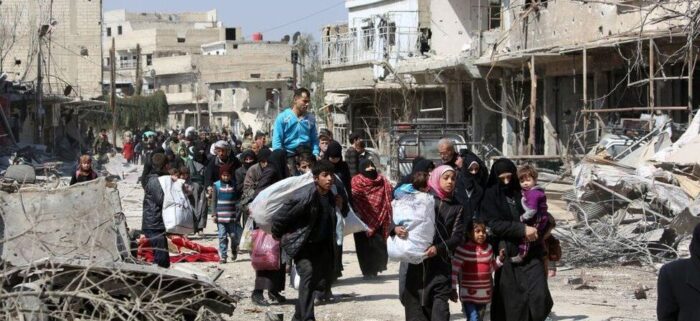As the Syrian crisis enters its 12th year, there are few things to cheer. After all, the war has caused untold destruction and economic loss. More than 350,000 people have been killed in the conflict, and the number of unaccounted for deaths is likely much higher. Nearly half of Syria’s pre-conflict population has been displaced, and the country’s GDP has dropped by more than 50%. It seems clear that more needs to be done to ensure that Syria’s economy continues to grow.
The World Bank is a key partner in the response to the Syrian crisis. They have been working in the region for nearly 40 years. The World Bank supports development projects by combining grants from donors with loans from Multilateral Development Banks. The World Bank has already supported US$3 billion in projects in Jordan and Lebanon on concessionary terms. They are currently working to find ways to improve lives and restore services to the country’s displaced population. With international help, they can help those who have fled Syria and provide assistance to those who remain.
In addition to economic hardship, Syrian children are particularly vulnerable to sexual abuse and exploitation. In some camps and informal tent settlements, children are forced to marry in order to survive. Further, the number of victims of sexual abuse is high. As a result, the Syrian crisis is also affecting the health of Syrian children. Sexual abuse is an epidemic among refugee women, with 30.8% reporting violence against their partners and 3.1% reporting non-partner sexual assault.
The displaced population of Syria reaches 5.6 million in Lebanon and neighboring countries. Another 6.7 million people have fled Syria and are living in informal settlements, damaged buildings, or temporary shelters. Many of these people have experienced multiple displacements, with 40% of internally displaced families displaced more than three times over the past decade. A large number of refugees puts the region’s social systems under great strain. Despite its relatively low cost, the humanitarian response in Lebanon is inadequate.
The United States must treat the Syrian crisis with the same focus as it does ISIS. While we don’t have the answer to the Syria crisis, we must play a role in re-energizing diplomacy. The four years of President Donald Trump have weakened American leverage in the international arena. Our allies in Europe are waiting for the United States to wake up to this crisis. This is a global crisis that affects everyone, from the U.S. to all countries.
Children in the conflict zone have never known peace. This has a profound impact on their mental and physical health. Many have lost family members. They have experienced psychological trauma and lost access to education. In addition, they are at risk of contracting diseases brought on by poor sanitation. The lack of access to clean water and healthy food increases the risk of respiratory infections and pneumonia. They have a weakened immune system as well as a diminished ability to fight diseases.
